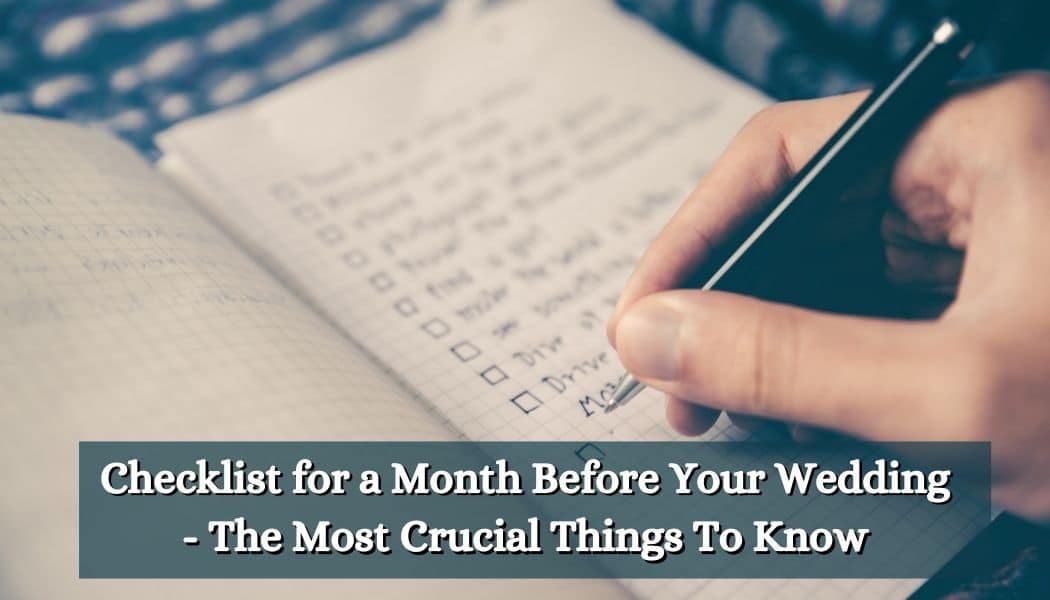
Everyone dreams of a perfect wedding — a wedding where nothing goes wrong, and everyone leaves feeling that you’re a handsome couple with a bright future. But let’s face it: planning and preparing for that kind of wedding is not a piece of cake (pun intended). You have to double-check, triple, and quadruple check every wedding detail and make sure you never miss anything. So how do you do that?
One of the most helpful things to do is to make checklists. Yes, checklists, plural. You will need not one, not two, but multiple wedding checklists. First, you need a list of everything you need to accomplish for each wedding preparation timeline.
The most crucial preparation time is the 30 days immediately before the wedding — crunch time. Whether you’ve decided on a super-short engagement or have been planning your wedding for a year, this is true. It’s only a month before the big day, and there are a million things to confirm and finalize! Plus, you’ll want to ensure everyone will make it to the wedding. It is the grandest, not to mention the longest, “last-minute” preparation of your life.
As any wedding planner will tell you, the best way to survive the month before your wedding than to have your ever-reliable checklist! What are the things to do a month before the wedding?
Of course, your last month will go more smoothly if you made selections and decisions about your wedding in the months before. So, for this article, we’ll assume you’ve already taken some of the critical steps that take several months of preparation, such as:
- Getting your marriage license
- Choosing the wedding venue
- Selecting your wedding bands
- Making traditional spiritual or guidance arrangements with your faith
- Asking your family for their blessing and cooperation
- Establishing a budget for your big day
- Selecting your attendants
- Making a guest list
- Sending all guests a “save the date” email or card
- Ordering your invitations
- Choosing a wedding dress and attendant attire and having everyone get their initial fitting early enough so that dresses can be made and suits can be tailored.
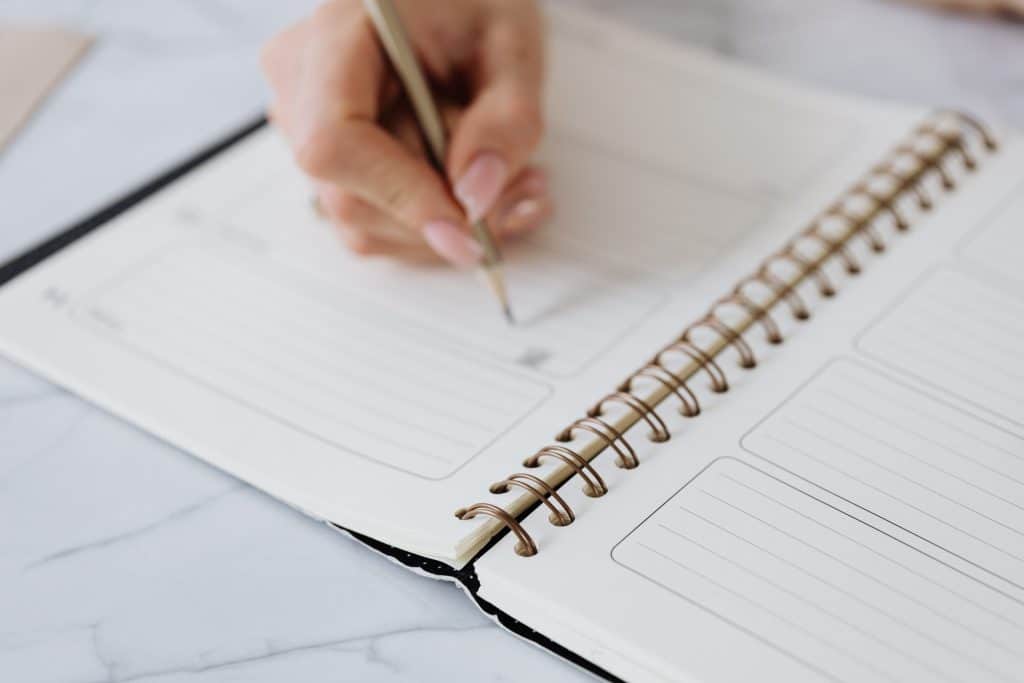
Once all that is under control, you can use the rest of the time before your wedding to plan everything else.
With all of those considerations handled, it’s time to get ready for the home stretch. To help, here is a sample wedding checklist for the final month before your wedding. You can use this checklist to identify, prioritize, accomplish, and make necessary adjustments for each detail for your big day. And don’t forget to ask for help from your maid of honour and best man if you need it!
Table of Contents
Suppliers
Contact all your wedding suppliers. Check on the details of your orders and confirm that all your orders will be ready on time. Some standard suppliers are:
- Flowers
- Cake
- Food
- Band/DJ
- Clothing
- Souvenirs
- Photographers and videographers
- Hair and makeup artists and others
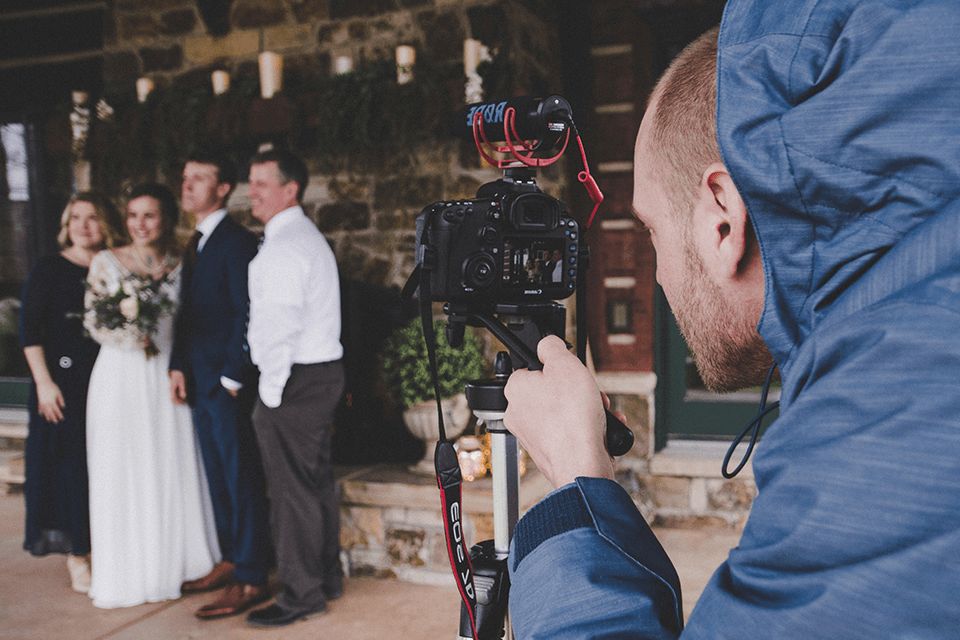
Many of your vendors will likely have forms for you to complete (hopefully online), and you must provide the information they seek as early in the last month as possible. These can be anything from a preferred song for the father-daughter dance to the access code for the security gate at your wedding venue.
Tip: Even though this is your special day, the truth is that wedding supplier are very busy during peak wedding seasons. For you, it’s the most important day of your life — but some wedding suppliers might have four events in a single weekend. So, the best insurance you have for making your day perfect is to supply as much needed information as possible, as early as possible, to all your suppliers.
Rehearsals and rehearsal dinner
It would help if you did not forget to make the necessary arrangements for the rehearsal. Usually, a day before the wedding is dedicated to it. This is crucial because it will tell everyone who has a role in the wedding what to do and how to perform their roles during the day.
Rehearsal dinner comes after the rehearsals. This is the time for family and close friends to spend time together before the wedding. It is a “party before the party.” Therefore, guests must have a good time.
For a rehearsal dinner, you can prepare a sumptuous dinner and a little program where toasts and speeches dedicated to the bride and groom happen. Rehearsal dinners are also a way for the hosts to limit those who speak during the actual wedding reception.

Although the rehearsal dinner honours the bride and groom, it is the ideal opportunity for them to show their gratitude to their families and everyone at the wedding party. They have given up their time and often have spent a considerable amount of money to make your day special. After the wedding, there won’t be time to thank all of them – so plan for a way to spread appreciation and love to the group.
Send out invitations
Hopefully, you have already mentioned and informally invited prospective guests to your wedding and even sent them a “save the date” notice. Hence, their calendars are precise for your big day. But sending out invitations is still necessary.
An invitation includes the complete details of your wedding, such as your name, the venue, the date and time of the wedding, and the wedding attire for the guests. A reply card is also inserted in the invitation for the guests to reply to your invitation formally. In the reply card, the guests indicate whether they are coming or not or coming alone or with the company. Reply cards can also include menu preferences, which will help your caterer.
These days, many couples still use formal, mailed invitations because it’s such a special tradition and marks the occasion in many people’s lives. But then, they follow up with a carefully worded email that reminds guests to look for the invitation in the mail, restates the date, time, and location, and possibly includes a calendar invite to help invitees block the day on their calendar.
Unfortunately, it’s common for busy people to not RSVP to a printed invitation in time, which can throw a wrench into your plans. So, allow digital RSVPs to avoid last-minute additions that result in unexpected catering expenses or parking difficulties.
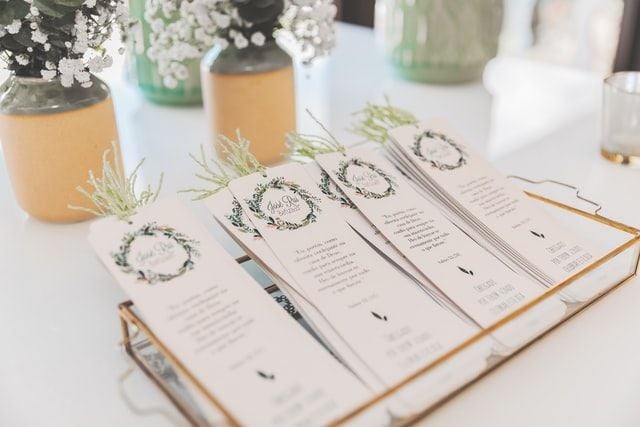
Seating arrangement
After handing out your invitations and upon receiving the RSVP replies, you have, more or less, the final list of guests who are coming to your wedding. The next thing to do is to create a seating arrangement.
By the name itself, it tells the guests where their seats are. It is also an effective way to save time during the big day. A typical seating arrangement is having the guests who know each other sit together at one table. You can also categorize your guests according to their relation to the bride or groom as follows:
- Bride’s family
- Groom’s family
- Entourage
- Bride’s colleagues
- Groom’s colleagues
- Bride’s friends
- Groom’s friends
Wedding hashtag
A modern wedding must-have is a wedding hashtag. It is one thing that makes your wedding unique from any other wedding. It is the “name” of your big day. Using the best wedding hashtags on social media makes it easier for you and the guests to see and collect all photos captured during your wedding day.
Finalize your look
You’ve probably planned it months before the wedding. But a month before the wedding? Some things have probably changed, such as your weight, skin tone (been in the sun lately?), or even your preferred makeup and perfume brand. That is why it is essential to update and finalize your wedding looks. Here are a few things you can do:
- Arrange a final fitting session. This includes your bridal gown, shoes, and accessories for the bride. For the groom, it consists of the suit, undershirt, pants, tie, and shoes.
- Have a makeup test. Decide on what kind of makeup you want on your wedding day, and keep in mind that your makeup must also work for your wedding photographs, both indoors and outdoors. Make sure your makeup is waterproof because there will be tears of joy!
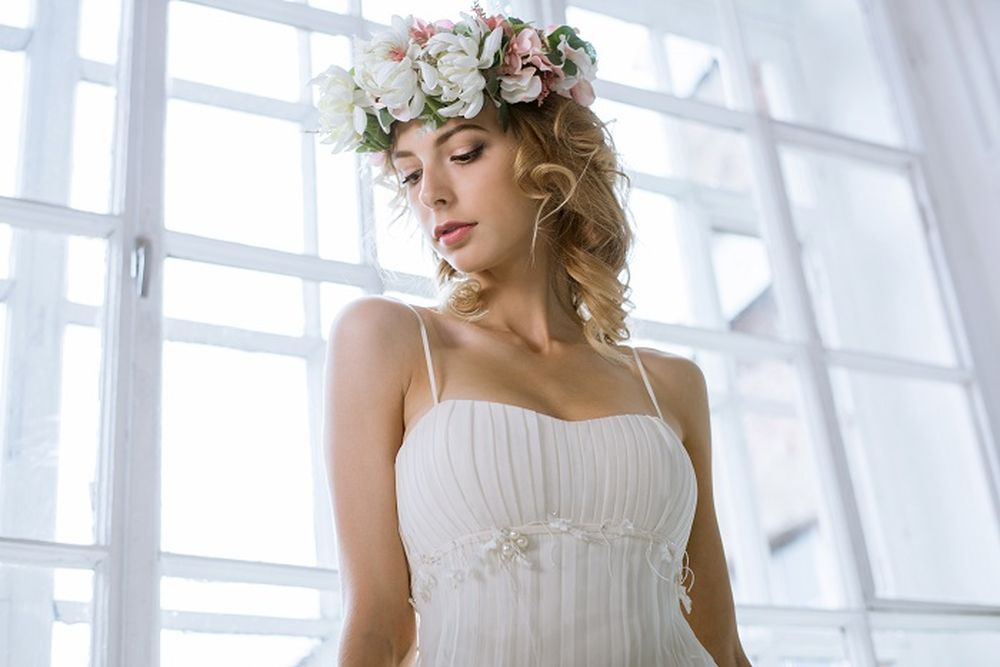
Officiant
You should have chosen your wedding officiant long before the final month, especially if you’re being married in a formal faith. This is because clergy are often booked well in advance for weddings, and you may not want your favourite spiritual advisor or leader to be replaced by someone you don’t know simply because you didn’t ask early enough.
Although the officiant is technically the third most important person in a wedding, it can’t happen without them! So, the bride and groom must complete all the arrangements required of their officiant and the related traditions of your faith. Many religions require a meeting with the officiant before the wedding, and if you have not done so, you should schedule one as early in the final month as possible. This gives your faith community time to bless your intentions and share the news before the big day.
Also, an essential part of the agenda for this meeting is to finalize the sequence of events for the wedding ceremony and make sure the officiant is available for the rehearsal and the wedding.

Wedding day itinerary
Here comes the fun part. Finalize your big day!
What should be included in your wedding reception program? What do you plan to do afterward? Have a plan for everything, from the moment you wake up to the time you close your eyes as a newlywed.
The plan for your actual day can be as individual as you are. There are thousands of inspirational sites online to help you decide what you want to do. Also, remember that you’ll be married at your reception — so celebrate!
Ready for your special day? We hope that this checklist can help you plan your wedding day with ease. But don’t fret if everything doesn’t go according to plan. In the end, it’s still about you, your love for one another, and the people celebrating your union. So enjoy it — and then it’s on to the honeymoon!
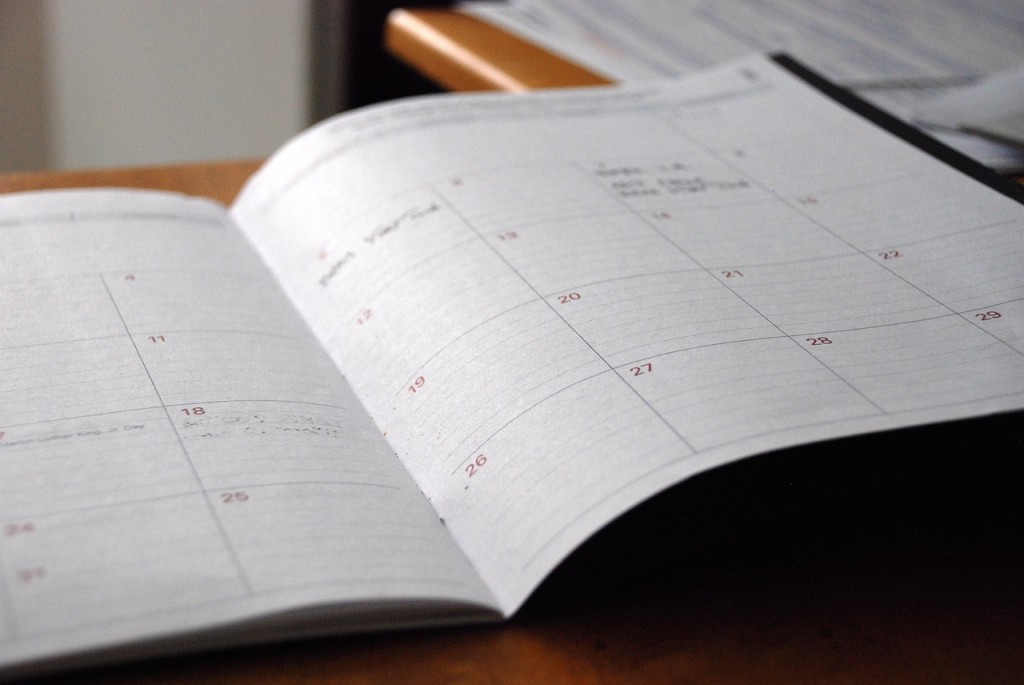
Author Bio: Rheyn aspires to be a best-selling author. She scribbles and reads a lot while watching over her little one, Fave. Happily married to a great guy named Pau, she loves to share learning and insights from their marriage journey. When not writing or playing with Fave, you’ll find her talking to her plants.
Summary: Checklist for a Month Before Your Wedding
- Confirm all the final details with your wedding vendors, including the venue, caterer, florist, and photographer.
- Finalize the seating arrangement and create a detailed seating chart for the reception.
- Schedule a final dress fitting to ensure your wedding gown fits perfectly and make any necessary alterations.
- Arrange for transportation for the wedding day, whether it’s a limousine service, car rental, or other means of transportation.
- Send out the final guest list to your wedding stationery provider for printing place cards, menus, and other personalized items.
- Confirm the timeline of events with your wedding planner or coordinator to ensure a smooth flow of the day.
- Purchase or make any last-minute wedding accessories, such as a veil, jewelry, or hairpieces.
- Schedule a trial for your hair and makeup to finalize your bridal look and make any adjustments if needed.
- Create a wedding day emergency kit with essentials like safety pins, band-aids, pain relievers, and other necessities.
- Gather all necessary legal documents, such as your marriage license, and ensure they are in order.
- Confirm the final headcount with the caterer and provide any dietary restrictions or special meal requests.
- Arrange for accommodations for out-of-town guests, making hotel reservations or providing a list of recommended options.
- Schedule a rehearsal for the ceremony to ensure everyone knows their roles and the order of events.
- Coordinate with the bridal party for their attire fittings and ensure they have all the necessary accessories.
- Confirm the delivery schedule with the florist for bouquets, boutonnieres, and any floral arrangements.
- Create a wedding day timeline and share it with key participants, such as the bridal party, parents, and vendors.
- Arrange for someone to take care of collecting gifts and cards at the reception.
- Have a final meeting with the photographer to discuss specific photo requests and locations.
- Practice your vows and ensure you have them memorized or prepared for the ceremony.
- Take some time for self-care and relaxation to alleviate stress and prepare for the big day.
FAQ – Wedding Planning
When it comes to wedding preparation, what should you do first?
Now that you’ve got the vision, determining what’s most important on your big day (which is essential since it will help you limit down your vendor and venue options) can help you capture the vision you’ve just journaled or pinned to your pinterest board. Is live music required, or would a DJ suffice? What about some truly excellent cuisine? Flowers and exotic decor? Valet? Is there a venue that has everything you need for convenience and enjoyment in one location?
What is a low-cost wedding?
Isn’t the term “budget” a bit of a misnomer? Everyone has a financial plan. Based on their own financial condition, everyone has a monetary amount they intend to spend. To be honest, depending on who you ask, a “budget” might mean a lot of different things.
When should you start planning your wedding?
There is no such thing as an average length of time spent arranging a wedding by a couple. Some couples elope after only a few weeks of planning, while others spend years perfecting their big day. But how long does it take to arrange a wedding on average? Experts estimate that it will take around a year.













My favorite part of your blog is when you said that grooms must arrange a final fitting session, and this includes ties, pants, and others. This is something that I will share with my brother who is getting married next month. Your tips will surely help him choose the wedding ties that will look good on him on his most special day.